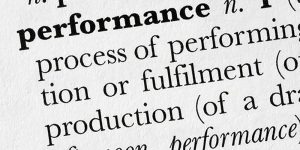How to reinvent your work and career
Reviewing, rethinking, reinventing your career
Do any of these descriptions fit your current situation, or that of someone you know? You want to ramp up your career and go all out to land the kind of exciting, executive position you feel you’re ready for now. Or perhaps you’re feeling a bit jaded and you’re looking for a chance to shift to a different kind of role, one where you’ll be able to use more of your strengths and interests. Perhaps it’s time to follow that dream, write that book or start that business. Maybe you want to develop a portfolio career which might include board work, as well as some social contributions important to you. Or it could be you want to reconfigure your life, so that it includes more flexibility and a different kind of balance in the way you spend your time. Or maybe it’s the case that you’ve just lost a job, perhaps as result of changes in your sector: you need to regroup and figure out ‘where to next’?
In fact, all of these apparently different contexts share a lot in common, in our experience. They all involve a personal journey of review and reinvention, in order to successfully transition from one career (and life) phase to the next. Navigating such transitions requires self-insight and a willingness to step outside your comfort zone of habit and routine. Like all journeys, a map is helpful.
The increased need to manage transitions well
Work and life used to follow a fairly predictable, linear trajectory. A period of education and learning was followed by a career generally focused in one sector, often in a single organisation. Then, at 65, you retired to rest, before facing an early (by today’s standards) death. In 1909, Australia started paying age pensions to men at 65 and to women at 60. But, at that time, only 4% of Australians were over 65. Now life expectancy is over 80 for both sexes. Along with this longer life, inevitably the retirement age is set to increase.
Many researchers point out that this, in some ways, is no bad thing. Meaningful and rewarding work contributes to ‘health span’ as well as life span. There may also be financial imperatives for continuing to work, with the need to top up savings to help manage a far longer period of retirement than our grandparents would have expected.
This longer life and longer career are occurring in a rapidly changing economic landscape, where old realities are giving way to quite different conditions and pressures. We’re now well into the knowledge economy, the digital age, the world of VUCA (volatility, uncertainty, complexity and ambiguity).
All this means that most of us will need to reinvent ourselves several times, with some of us doing so many times. Indeed, there is only a small chance of you never needing to redesign your life!
What does success mean to you?
While there are obviously some external markers of success, such as enough money to take care of your security and comfort, meaning and a sense of purpose have been shown to be the best predictors of life satisfaction. For instance, in his earlier research, psychologist Martin Seligman focussed on happiness. But then he admitted his thinking had changed. Happiness is fleeting. Instead, it’s a sense of purpose that delivers a deeper satisfaction. Do you have a personal framework that helps you make decisions? In a complex world, your values and purpose provide some simple rules, guiding your choices. The first step in managing a transition is to clarify and connect with what truly matters to you.
What do you want?
It’s time to take stock of your strengths and weaknesses, as well as your talents and limitations. Part of this step also concerns factoring in financial and other realities – such as qualifications you may need and research you will have to undertake. For example, some transitions need a period of gearing up towards a new career stage. Maybe you need to learn some different skills. Perhaps you’ll need to finance a period of time when you’ll earn less as you settle into a fresh start. It’s time to reach out to your network or consider getting a coach as a sounding board. Take some time and do your research. You need to be grounded and practical.
Can you describe the kind of future you want? How will you balance the different domains in your life, including work, family, relationships, well-being and so on? In relation to each of the domains most important to you, where are you now? What needs to change in order to close the gap between your current life and the one you truly want? This is where you’ll need to design action steps that will move you, little by little, towards what you want. Much like planning and implementing a complex project in an organisation, small ‘safe to fail’ experimental steps towards your goals can be more effective than huge radical leaps.
Making your start stick
Periods of transition are often characterised by the ending of something. You finally face the fact that you aren’t happy at work. Your job no longer engages you. Or you lose it. Whatever the catalyst, you know your life as you’ve been living it doesn’t satisfy you. You can’t go back to how you felt before. For a while, you may even feel poised between the old and the new, between what’s finished and what isn’t yet real. This is the time to try some of the question steps outlined in this briefing. In this endeavour, be focussed, be prepared and, above all, be persistent!□
PRACTICAL IDEAS TO APPLY IN YOUR BUSINESS
Considering your next career step
- What percentage of your current job do you enjoy?
- Which parts of it do you enjoy the most? Why?
- At those times, what are you doing and who are you with?
- Thinking back over your career thus far, what have been highlights for you?
- What skills were you using at those times?
- Can you define what it was that made these times special?
- What steps could you take in your current role that would help you spend more time engaged in work you find really rewarding?
- List what you see as your skills, strengths and talents.
- Take stock of your current circumstances, including any constraints, for example, your financial situation and other responsibilities.
- Reflecting on your answers above, write down 5 words or phrases that describe your ideal role.



